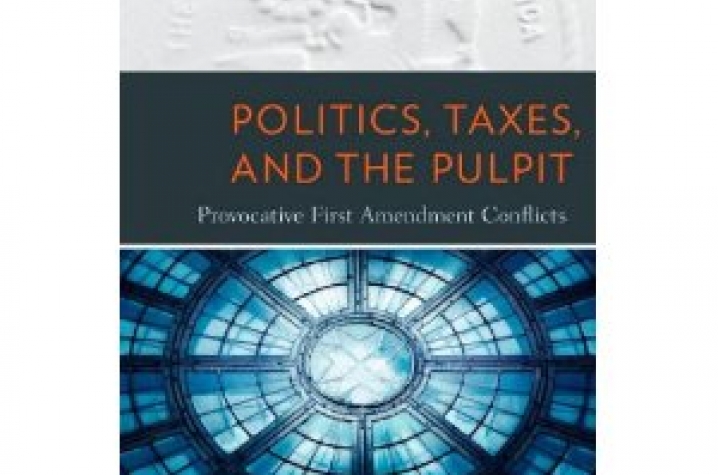UK Law Conference Focuses on Intersection of Politics, Religion, Taxes, and Free Speech Controversy

LEXINGTON, Ky. (Oct. 6, 2011) — Can religious leaders make political endorsements without jeopardizing the tax-exempt status of their houses of worship?
That question and others will be addressed at "Politics, Taxes, and the Pulpit: Provocative First Amendment Conflicts," a conference sponsored by the University of Kentucky College of Law from 10 a.m. to noon Wednesday, Oct. 12, in the UK College of Law Courtroom.
The conference will discuss issues explored in the text of the same name, recently published by Oxford University Press and co-authored by UK’s James and Mary Lassiter Distinguished Visiting Law Professor Nina J. Crimm and Professor Laurence H. Winer of the Sandra Day O'Connor College of Law at Arizona State University.
Crimm commented: “As the nation’s presidential and congressional campaigns heat up and the Kentucky gubernatorial campaign is in full swing the issue is of great importance. Hundreds of spiritual leaders nationwide are intentionally or unintentionally, explicitly or implicitly endorsing and opposing political candidates during worship service sermons and other sacerdotal functions. By doing so, they are exercising their constitutionally protected free speech and free religious exercise rights, but they are jeopardizing a multitude of tax benefits enjoyed by their houses of worship and donors.”
The authors and invited speakers will engage in a timely and thought-provoking dialogue. The controversy is whether a spiritual leader, acting in his or her official capacity as representative of a house of worship, should be able to support or oppose a political candidate from the pulpit, or in another private or public forum, without loss of the institution’s federal tax-exempt status and many accompanying tax benefits.
Such religious voices in the political arena are applauded by some people but are deeply troublesome to others. At issue are the federal tax subsidies benefiting houses of worship that are available only if they completely refrain from explicit or implicit partisan, political speech, a condition in tension with the protections of the First Amendment: freedom of speech and press, the free exercise of religion, and the avoidance of government establishment of religion.
The conference will feature a presentation by the authors with comments by UK College of Law Dean David A. Brennen, UK law professors Joshua A. Douglas and Paul E. Salamanca, and the Rev. Nancy Jo Kemper, interim associate dean for interreligious life at Transylvania University.
The conference is free and open to the public. For more information, please contact Amanda Debord at amanda.debord@uky.edu.




